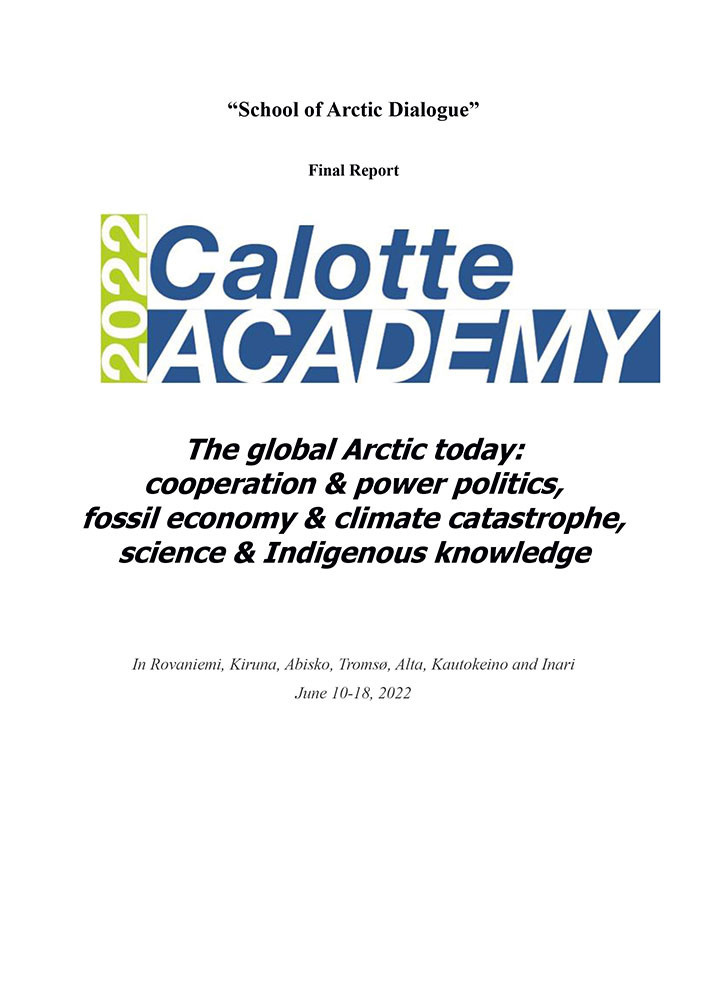
The Calotte Academy 2022, with the title The Global Arctic today: cooperation & power politics, fossil economy & climate catastrophe, science & Indigenous knowledge, took place in 10-18 June 2022 in the European Arctic and Sapmi, including sessions in Rovaniemi, Kiruna, Abisko, Tromsø, Alta, Kautokeino and Inari (in Finland, Sweden, Norway).
The 2022 Academy consisted of 37 scientific or policy-oriented presentations by the participants of the international group of 32 early-career scientists (mostly PhD candidates) and senior research from Europe, North America, Russia and Asia, as well as by local experts and policymakers in the locations.
The Final Report features presentation: Elena Adasheva and Luiza Brodt. Non-State Science Diplomacy as a Tool for Cooperation in the Arctic.

“Elena Adasheva and Luiza Brodt concluded the session by presenting a joint project <…> regarding non-state science diplomacy as a tool for cooperation in the Arctic. The discussion is really important to our times as in 2022 global conflicts have already deeply impacted cooperation in the Arctic region, raising numerous concerns about the region’s present and future. Two case studies were examined: The International Arctic Social Sciences Association (IASSA) and Arctic Permafrost Research Networks. The presenters, through the case studies, proposed to consider the concept of non-state science diplomacy, as a means of bringing the focus on the needs of scientific knowledge production, instead of the nation state. Through the presentation the audience was made aware of how these non-state actors have managed to develop a shared disciplinary knowledge base in Arctic sciences and influenced decision-making in various levels of policy. There was a very interesting discussion regarding how this framework could help scholars and practitioners think about new strategies for building cooperation in the Global Arctic.

All the participants brainstormed on ways of facilitating the exchange of information between state and non-state actors in the Arctic today and expressed the hope that a formula will be found for Russian institutions to keep providing knowledge on the academic level, even in these extremely turbulent times. The session concluded by expressing the hopes of everyone involved that the scars left in international cooperation will not be as deep as to disrupt it for the decades to come.” (pp. 24-25)
